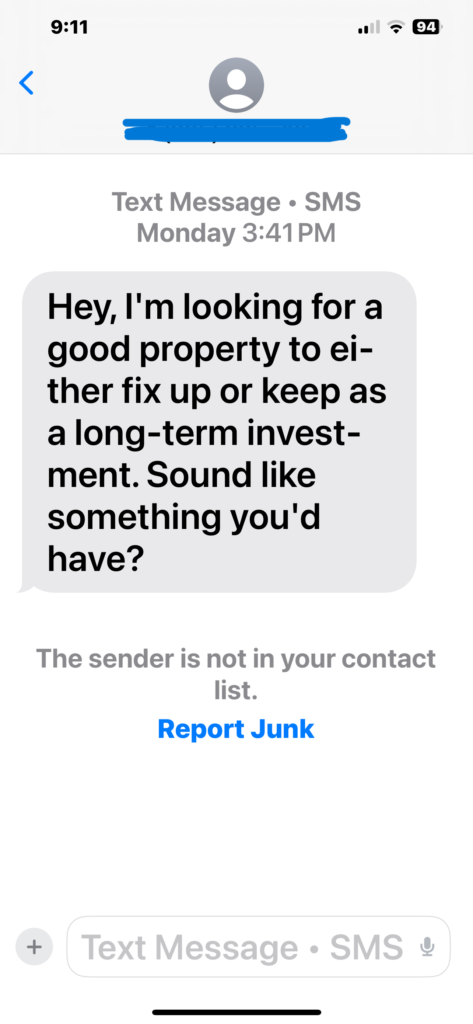July 7, 2025 | 3 Minute Read
A tired landlord is someone worn down by the constant grind of managing rental properties. What began as a promising path to passive income often turns into a full-time job filled with tenant issues, maintenance headaches, and financial surprises.

From chasing late rent payments to paying for unexpected repairs like broken HVAC systems, many landlords realize the stress outweighs the returns. What once seemed like a great investment becomes a never-ending cycle of vacancies, evictions, and expensive turnover. Worse, some tenants leave behind damage and personal belongings, trash, and even abandoned animals, increasing repair costs and wiping out rental income gained.
Sounds familiar? You’re not alone. Thousands of landlords across the country are rethinking whether it’s worth keeping rental properties.
The Good News? You Can Find These Tired Landlords—If You Know Where to Look
When I speak to buy and hold investors in my market, I ask: Are you tired of being a landlord?
Finding them isn’t as hard as you might think.
Many investors start by pulling county records to identify absentee owners (where the mailing address differs from the property address). Then they skip trace and cold call them. But let’s be honest—those calls rarely go far.
I get these calls myself, usually from overseas virtual assistants asking, “Would you like to sell your property?” The generic texts aren’t much better—often AI-generated and easy to ignore like this one.

But what if you could get the direct number of a tired landlord, referred to you by someone who already knows them, for a reason that has nothing to do with selling? And it didn’t cost you a dime?
Sounds too good to be true?
Here’s the simple trick I use: tenant referrals.
Here’s How It Works
When a prospective tenant reaches out about one of my available rentals, I always ask: “Why are you moving?”
Here are the top three responses I hear:
-
The landlord won’t make repairs.
-
The property failed the Section 8 inspection.
-
The landlord is selling the property.
Sound like tired landlords? Absolutely.
Once a tenant applies, the application asks for their current landlord’s contact info. I call for a tenant in good standing reference. These landlords always pick up, they’re polite, and willing to talk.
After confirming the tenant’s history, I ask:
“By the way, I’m looking to purchase properties in this area. Since this one’s becoming vacant, would you consider selling it?”
That’s how I met Steve.
A tenant told me he had to move because his landlord—Steve—was selling his rentals. When I looked up the property, I saw it was owned by an LLC. A company search revealed Steve owns 10 properties.
I called him. He gave a great tenant reference and then shared that he’s retiring soon and plans to sell all his properties by year’s end.
Now, we’re in early discussions about pricing and potentially buying his entire portfolio.
And all of this comes down to a simple question I ask a tenant: “Why are you moving?”
What If the Tenant Never Applies?
Even if tenants don’t complete the application, I follow up. Once I approve someone else, I reach back out to previous leads and let them know we’ve filled the unit but may contact them if another one opens up.
Then I say:
“Would you mind sharing your current landlord’s contact info? If we can help the landlord sell, we might be able to fix the place up—and even keep you in it.”
If they hesitate, I sometimes offer $10 via Venmo in exchange for the contact info and permission to use their name as a reference when I call. This works almost every time.
Why not just skip trace? Because tracking down contact info for LLCs is often unreliable—and time-consuming.
This approach has helped me buy multiple properties directly from tired landlords. If you already own rentals, this is a smart, low-cost strategy worth adding to your acquisition strategy.
